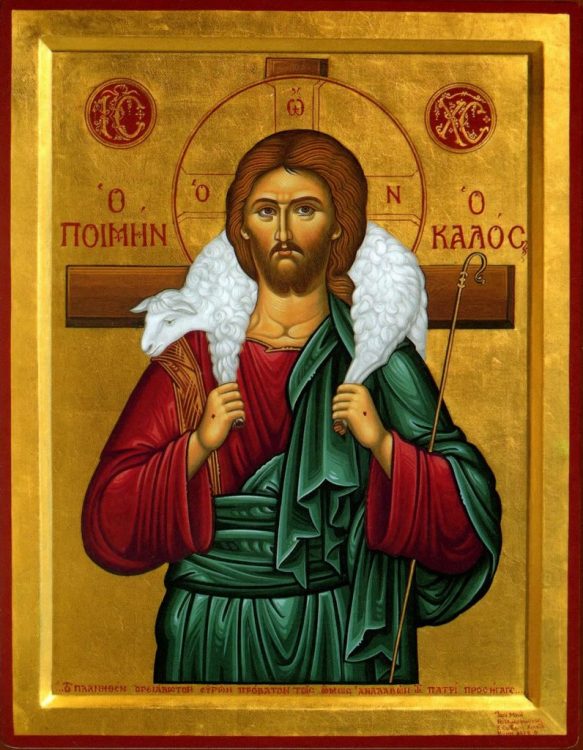Stand Up and Teach Humanae Vitae Boldly

Daily Reading & Meditation: Tuesday (July 24)
July 24, 2018
The Problem of Sexually Active Priests
July 24, 2018
Painting: Pieter de Grebber (1600-1653), “St. John the Baptist Preaching Before Herod”
This is no time for mute prophets, for the Church is in “a lively battle for the dignity of man”
By John Grondelski, EWTN News, 7/22/18
The readings for the Sixteenth Sunday in Ordinary Time (July 22) say a lot about teaching. Jeremiah, in his usually downbeat manner, castigates in the Lord’s Name the false shepherds “who mislead and scatter the flock of my pasture.” Leaving them in evil behavior deserves the promise of divine punishment: “I will take care to punish your evil deeds.”
The same idea was already present in the First Reading last week. If you recall, Amaziah, the false priest, prophet throws the true prophet, Amos, out of the shrine at Bethel, because Amos reproves him for engaging worshipping golden calves. As would be true of the yes-man cleric throughout the ages, Amaziah invokes political power to bolster his claims: this “is the king’s sanctuary and a royal temple.” (The problem, of course, is that the political power often perverts religion to its own purposes. A King of Israel should have known better than to let Amaziah do his stuff in the first place).
The same teaching theme occurs in the Gospel. Having returned from their little pastoral assignment Jesus gave them last week, the Apostles are feeling pretty good about themselves. Jesus invites them to come off and rest for a while but, pressed by the need of the people, out of “pity” for “sheep without a shepherd” Jesus puts off His rest and, instead, “began to teach them many things.”
My reflections this week are primarily directed to the priests and bishops in the audience.
On Wednesday, July 25, the Church will mark the fiftieth anniversary of the encyclical letter of Blessed Paul VI, Humanae vitae.
Let’s be honest. The Church, and especially its clergy, have not done the best job of teaching what is in that encyclical.
Sure, most Catholics can say the encyclical was “about the Pope rejecting birth control.” But, beyond that? The sound you hear, gentlemen, is called “crickets.”
And the effort from the pulpit and elsewhere to fill in that knowledge gap. Yes, those are also crickets.
I am not interested in casting blame over the past half century: there’s no use crying over spilt milk. But one cannot deny that Humanae vitae has not been particularly prominent in preaching, has experienced its own version of a “don’t ask, don’t tell” policy in many confessionals, and is largely abandoned by the professional teaching class in theology and religious studies departments of most “Catholic” colleges and universities in North America. Those are simple facts.
So, what are we going to do about it?
Today’s readings suggest we ought to do something. They suggest that the shepherd who fails to teach his sheep is derelict, with Jesus offering the example of “teaching them many things” even if He had planned his day off or it was after scheduled rectory hours.
The only element missing from the selection of readings is Ezekiel 3:17-22, which captures the larger theme of “watchman” in Ezekiel — the prophet has an affirmative duty to teach, because if the sheep persist in wrong because they have been left in their ignorance, the shepherd is held to account.
Humanae vitae is clear in its expectation: writing to priests, the late Pope insisted “it is your principal duty … to spell out clearly and completely the Church’s teaching on marriage” (no. 28). And how we need that today.
In 1968, the issue that needed addressing was contraceptive intercourse: why is it wrong to act affirmatively to destroy the procreative value of sexual intercourse?
Today, that problem is a lot more complex because, once one denies the central teaching of Humanae vitae—that there is “an inseparable connection, established by God which man on his own initiative may not break, between the unitive significance and the procreative significance which are both inherent to the marriage act” (no. 12) — then those two meanings of the sexual act can be spliced together arbitrarily, in any convenient manner. The history of the last half century bears that out.
When the so-called “Minority Report” of the “Papal Birth Control Commission” warned that accepting contraceptive intercourse would inevitably lead to accepting (or at least undermining the reasons against) fornication, masturbation, and homosexual activity, it was pooh-poohed. Today, the same theologians who defend contraceptive intercourse defend all those other things as well.
If in 1968 the issue we didn’t want to talk about from the pulpit was the relation of babies to sex, by 1978, Louise Brown posed the question, why not babies without sex? I suspect there are a lot of Catholics who feel down in their guts that something is wrong with “making babies” in a lab, but cannot articulate just what that wrongness is, or “who are they to judge” other’s acts?
By 2018, the issue is completely—why sexual differentiation? Was “male and female He created them” (Genesis 1:27) the most primordial expression of love, in which humanity, male and female, reflected the tri-personal image and likeness of God? Or was “male and female He created them” the first act of discriminatory injustice, leading to eons of “patriarchal injustice” wrought by the dreaded “gender binary?”
These issues are being painstakingly fought out every day in our larger society. Are they being mentioned in churches? Do our people understand what the Church teaches?
The disassociation of Millenials from the Church and the survey data suggesting Millenial support for “marriage equality” indicates clearly they do not.
So, what are we going to do about it?
Will we maintain the omertà that has largely characterized the approach of local churches in the West for the past half century? Or will we—following especially St. John Paul II who recognized we are in the middle of “a lively battle for the dignity of man” — start talking about:
-
the implications of Catholic marital and sexual ethics for our faith and vice versa?
-
the rationale for those ethics, which affect most of the people in the pews on Sunday morning?
-
the need for clear and more than cursory instruction in our premarital courses?
Are we ready to stand up — as Jesus did, even though He was tired — and “teach them many things?”
Copyright © 2018 EWTN News, Inc. All rights reserved.
http://www.ncregister.com/blog/grondelski/stand-up-and-teach-humanae-vitae-boldly




